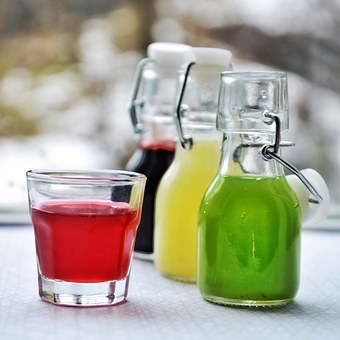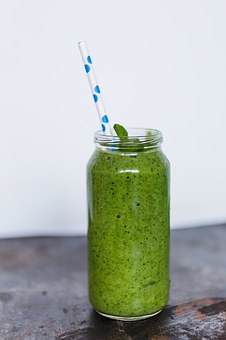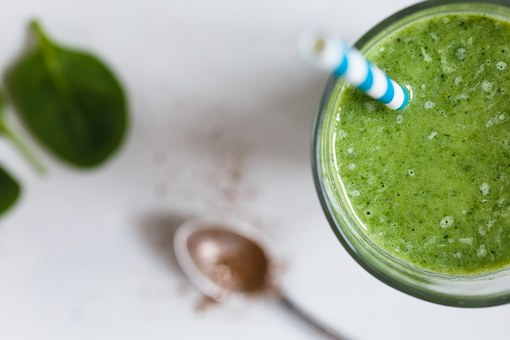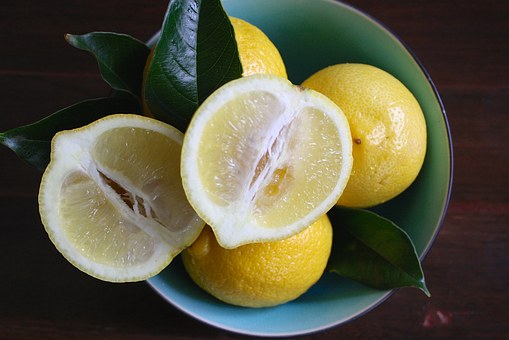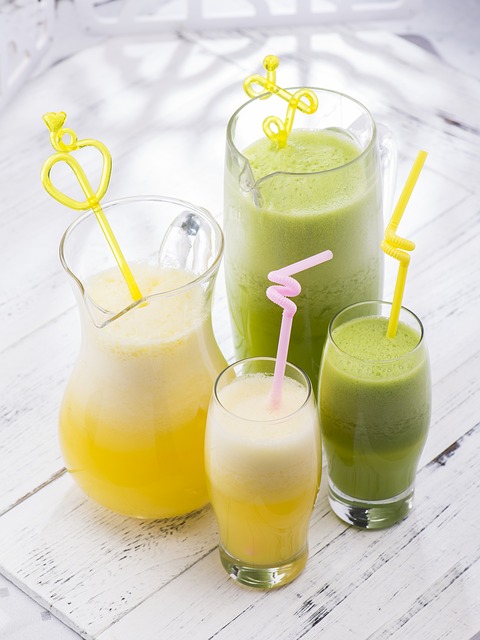Juicy Jamboree – 4 Quickie Health Boosting Juice Recipes!
Juicing recipes for fasting can give you a big boost in weight loss. When it comes to making your own fruit or vegetable juice at home, it goes without saying that in order to maximize the nutritional value of the drink it really is important to ensure that only the freshest ingredients are used and I would recommend organic if you have the choice. You should only make juice that you are going to use straight away as leaving it stored in a fridge for instance for any length of time will degrade the juice and it will not provide you with the same level of goodness or nutrients. If you are in the lucky position of being able to grow your own produce with which to make your juice then that really is the best possible option however, most people are not able to do this and therefore have to rely on buying their fruit and vegetables from a shop. In this case you should always do your best to avoid damaged or overripe produce.
If you live in a place where it is difficult to get hold of fresh fruit and vegetables try to locate a health food shop which carries an organic, unsweetened ready made juice. The juices I have included below will require the use of a juicer or a blender. As I am sure you are probably aware, the difference between these two items, is one removes the juice from the fruit/vegetable leaving behind the solid bits while the other liquidizes the whole lot. This being the case, if you are going to use the blender, depending on the fruit/vegetable you are using, you may need to peel and de-seed etc. If you do not have a juicer you can get round this by adding a glass of water then blending the ingredients together, after which you can pour the juice through a piece of muslin or a sieve to remove the solids. Juice is usually nicer when served cold so it is a good idea to pour it into a glass which has had crushed ice added to it.
With vegetable juice it is always nice to add a bit of salt and pepper for a little extra zing. I have included four juicing recipes, two fruit and two vegetable, for you to consider. They are all really quite simple and easy to make so I hope you will enjoy trying them out. My first recipe is for mango juice, this is my favorite as I was born and grew up in the West Indies and mangoes were almost part of my daily diet. This juice always brings back wonderful memories of sun, sea and sand and a carefree childhood spent mostly on the beach.
Mango Juice Frappe
2 Medium sized mangoes 2Tbs of orange blossom water Ice cubes made with chamomile tea Remove the skin with a knife and then cut the flesh away from the seed/stone of the mango. Blend together the mango flesh, the orange blossom water and the ice cubes until the ice is thoroughly crushed then serve.
Pineapple Panacea
50ml Pineapple Juice 100ml Soya Milk 1Tsp Grated Coconut Sweetener/Sugar to taste Blend the pineapple, soya and coconut together once well blended add the sweetener, pour into glass containing ice and serve.
The Triple C Blast Off
1/2 Red or White Cabbage 4 Roughly Chopped Carrots 5 Roughly Chopped Celery Sticks 1/2 Red Onion Water Season with Salt and Pepper 1Tsp Lemon Juice Juice the vegetables then add a little water to reduce the consistency; add salt, pepper and lemon juice. Serve this one Hot or Cold to suit the mood.
Lettuce Heart with Cucumber Combo
2 Medium Sized Cucumbers 1 Lettuce Heart Juice the ingredients together then serve. Note: In regard to the above recipes; due to it being hard to guess the amount of juice individual fruits will provide; you may have to adjust the number of fruit/vegetables in the recipes above, depending on their liquid content. Riper fruit often yield more juice but are not always as nutrient rich as their younger counterparts.
To conclude, I would like to remind readers that juicing is an excellent way of ensuring that we get our recommended daily portions of fruit and vegetables. Especially, for those of you, who, like me, do not really enjoy eating vegetables. It seems that by turning them into juice makes them much more attractive as well as easier to consume. Also check out some of my books online here for more tips.
Juice Fasting – A Natural Way to Lose Weight
Fast weight loss by just replacing your normal solid foods with water, fruit juices, and vegetable juices for two to three days. So simple I think. Juice fasting is a simple way of detoxifying your body with water, fresh vegetable and fruit liquor. Fruit juices are recommended not only for cutting down weight but also for the general health of the body as it is a rich source of vitamins and minerals required for healthy living. Different types of fruits and vegetable drinks are recommended in diets for fast and healthy weight loss. Vegetable juice helps you get your body detoxified and when taking before each meal helps to control your appetite. Parsley and carrot juices are required for the maintenance of blood sugar level as they also increase your vitamin consumption. Cucumber asparagus and celery are helpful fruits drinks for healthy weight loss. Fruits and vegetables contains low fats and calories, therefore it is better to replace solid foods with fresh fruits and vegetables juices in order to gain quick weight loss. Species like pepper, cinnamon, chili powder, onion powder, garlic powder, cumin and cardamom can also be added to the drink to enhance the fat burning process. Juice can be prepared either from a single fruit or a blend of fresh fruits and vegetables with the use of mixer or juicing machines.
Some juice recipes available for weight loss include:
#1. Jogger’s Paradise: This recipe requires a small yam, 2 hard pears and 3 oranges. The diet is perfect for strength and endurance needed for joggers.
#2. Papaya Passion: papaya passion requires 1 medium papaya,5 pitted dates and 1 red apple served fresh after blending.
#3. A Taste of Heaven: The juice is prepared from 2 carrots, 2 apples, 1 sweet potato as well as pinch dulse powder. After blending, decorate the juice with a little slice of Spanish onion.
#4. Strawberry Delight: The strawberry delight juice demands the mixture of 4-8 strawberries, 8-10 dates, and 1-2 bananas.
#5. Calcium Drink Recipe: prepare this liquor with 3 medium carrots, A½ cup fresh broccoli pieces, 1 apple, and A½ lemons as well as small fresh parsley.
#6. Potassium Drink: This refreshing juice is prepared by blending together 1 stalk of celery, 4 medium carrots, a handful of fresh spinach and fresh parsley as well as A½ lemons.
These fruit diets when prepared well and served fresh serve as effective remedies for weight loss. Conditions necessary for effective Juice fasting for weight loss. Juice fasting for weight loss demands that dieter should reduce the consumption of certain solid foods for 7 days before the fast for a quicker weight loss. Juices should be drank regularly with an average consumption of 62 ounces each day for about 3 days.

Typical vegetables and fruits like apple, orange, carrots, spinach, etc. are practical choices for juicing recipes; as well as 6 glasses of water should also be taking to support the juice for quicker and healthier weight loss. Better fruit juice is gotten from the combination of fruits and vegetables. Those who cannot strictly be on juice diet alone can take a meal in a day. Juice fasting is not recommended for people with special health conditions like pregnant women, nursing mothers, children, those suffering from diabetes, low blood sugar etc. Despite the fact that juice fasting is very good it also has some side effects such as constipation, acne, headaches hypoglycemia, tiredness, fainting, dizziness, low blood pressure etc. In spite of the above probable side effects, well and fresh served juice from vegetables, fruits or both is very effective for fast weight loss. Its relevance is numerous, not only for weight loss but also for the general health of the body. So get to juicing for weight loss. Check out some of my books for more juicing recipes tips!
